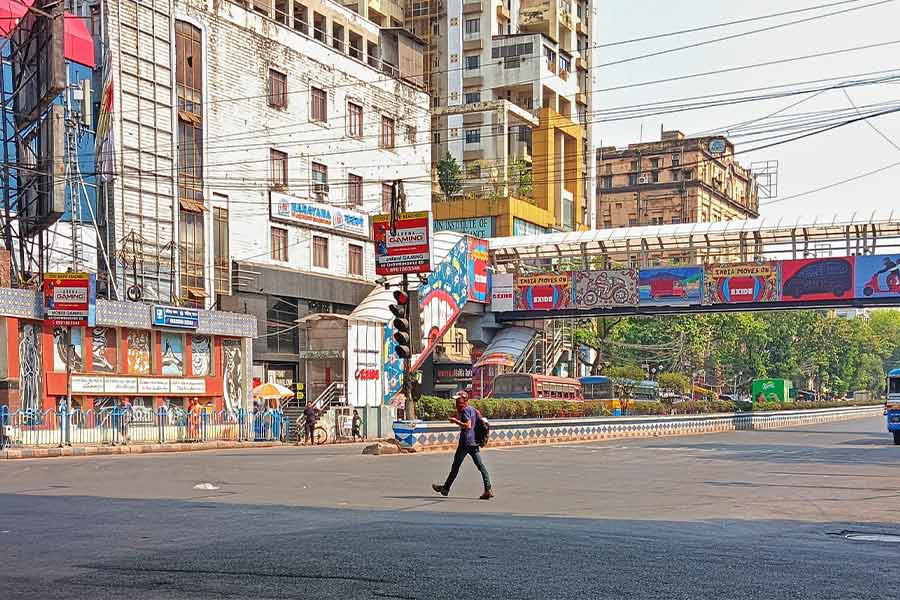An initiative by the insurance regulator has enabled health insurance subscribers to avail of cashless treatment at any private hospital or nursing home, irrespective of whether it is part of an insurer’s network or not, subject to certain conditions.
Some policyholders are already availing of the facility but insurance companies and hospitals said there is a need for more awareness and clarity for the scheme to benefit a larger section of the population.
Medical insurance companies said they are receiving requests for cashless treatment from many small healthcare units in and around Kolkata, which earlier could not offer the facility because they were not part of the insurers’ network of service providers.
The “Cashless Everywhere” scheme was announced in January by the General Insurance Council, a representative body of general insurers.
Earlier, to get treated in a hospital or nursing home that is not part of an insurer’s network of facilities, patients would have to pay the full amount and then go through a cumbersome process to claim a reimbursement.
Now, even those going on vacation need not worry about the availability of cashless facilities while walking into an unfamiliar hospital, insurance companies said.
“We are getting requests from small hospitals and nursing homes in Kolkata, which were not in our network, to allow the cashless facility. Most of the requests are being approved,” said Saurav Kariwala, deputy manager, National Insurance Company Ltd, and member, Kolkata Preferred Provider Network Committee.
He said a “temporary MoU”, valid for three months, is being signed between the healthcare provider and the insurer for offering the cashless facility.
“Although most hospitals and nursing homes are part of the network in Kolkata, there are some that are still not. They are requesting for a permanent agreement, too, which is valid for three years,” said Kariwala.
He said even for daycare procedures like cataract removal, institutes which were earlier not offering the facility are now tying up with National Insurance.
One of the healthcare providers that has been offering the cashless facility since the implementation of the scheme is Kolkata Heart Lung Centre and Research Institute in Survey Park, off EM Bypass.
“Sixty per cent of our requests for cashless treatment in the last few weeks have been approved. A few were denied,” said Gourab Chakraborty, an executive at the institute.
However, several insurance companies and third-party administrators, which process claims for insurers, pointed at a number of riders that can come in the way of the implementation of the “Cashless Everywhere” scheme.
Criteria: The General Insurance Council has set several criteria for patients to avail of the “Cashless Everywhere” facility. For elective procedures, the policyholder should inform the insurance company at least 48 hours before admission.
For emergency treatment, the policyholder should inform the insurance company within 48 hours of admission.
The claim should be admissible according to the terms of the policy and the cashless option should be offered based on the guidelines of the insurance company.
Eligibility: A healthcare institute must fulfil the eligibility criteria set by the insurance company such as the required number of beds. A hospital must have the operating theatre required for the procedure for which the cashless facility is being sought and qualified doctors and nurses.
“If a small nursing home for maternity care admits a patient suffering from a cardiac ailment, the cashless facility will be rejected,” said an official of a TPA.
Rates: The healthcare provider and the insurance company concerned have to agree on the rates offered by the insurer for a particular treatment.
“Often, the cause for refusal is a dispute over rates. The hospital or nursing home does not agree on the rates offered by the insurance company,” said an official at a private health insurance company.
“The three parties — insurer, healthcare provider and policyholder — have to agree with each other for the policy to become successful. Each has to understand the principle of the policy and act accordingly,” said Kariwala.
A TPA official pointed out that transparency on part of the healthcare provider is a must. “It is difficult for a patient to know whether the healthcare provider fulfils the criteria for the cashless facility. The hospital or nursing home has to be transparent with the patient and the insurer,” said the official.
“Also, often the healthcare institutes, particularly smaller ones with less capital, are reluctant to offer the cashless benefit, which is a credit facility.”






